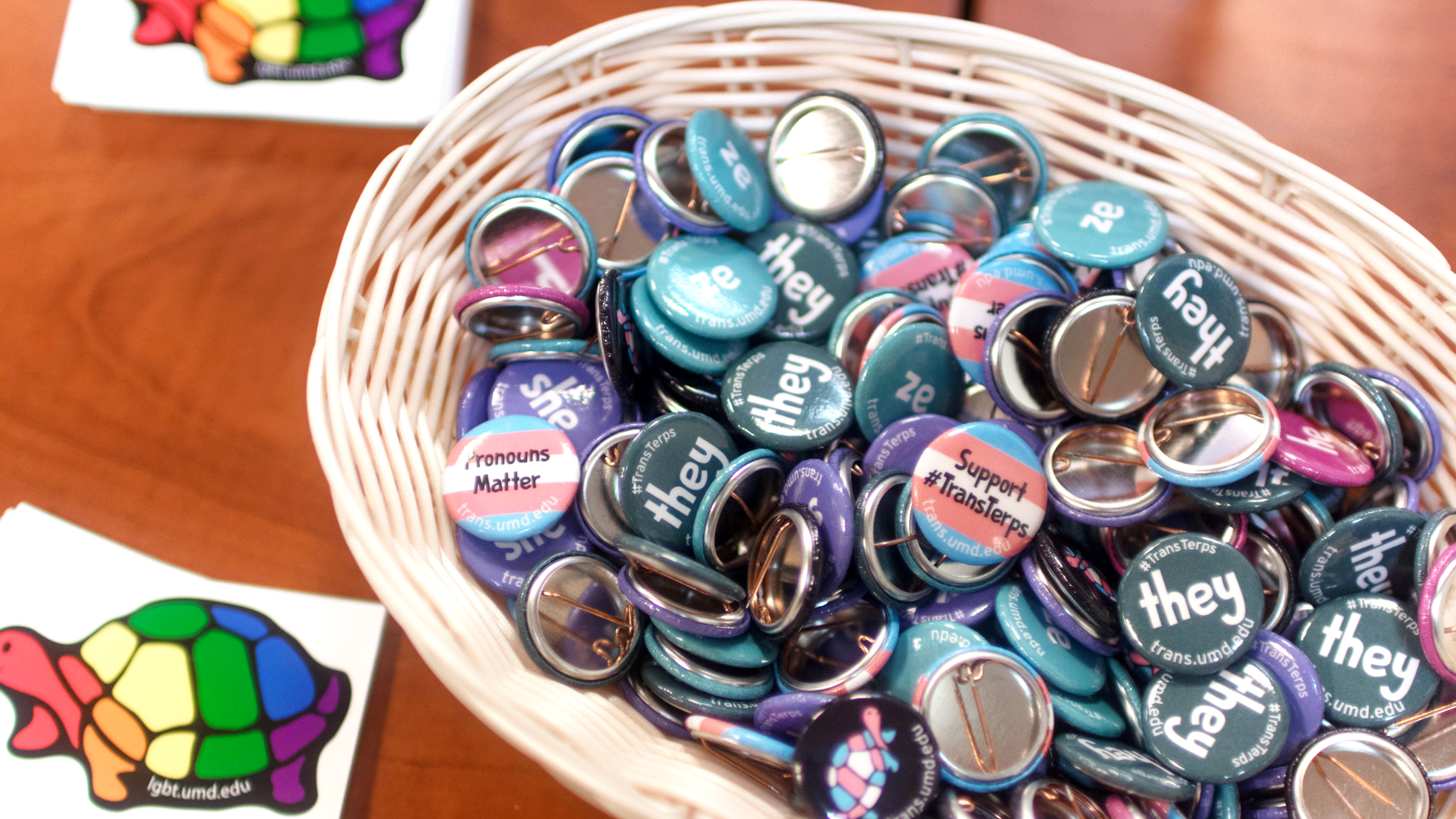By Emily Hahn
For The Diamondback
The University of Maryland Prevention Research Center hosted a webinar on Tuesday to share the work of the Stories and Numbers Project, a collaboration that promotes the safety and wellbeing of LGBTQ+ youth in schools.
Meg Bishop, a doctoral candidate in the Department of Human Development and Family Sciences at the University of Texas at Austin who works on the project, spoke at the webinar.
Dr. Jessica Fish, the deputy director for research and evaluation at the Prevention Center, directed the webinar and emphasized the importance of the topic.
“The goal of the talk is really to help those out in the community who are interested in supporting LGBTQ students in schools, to be able to implement policies, programs and practices,” Fish said.
[Community members say graphic in a UMD presentation perpetuates Asian stereotypes]
Bishop is a co-author of the paper “Promoting School Safety for LGBTQ and All Students,” which Fish had a “front row seat” to due to working with Bishop’s co-author previously, Fish said.
“When we were trying to identify speakers for our webinar series this year, they were at the top of my list to help and come and speak to folks,” Fish said.
In the webinar, Bishop said that the Stories and Numbers Project combines research and personal stories to create action strategies to protect and support LGBTQ+ youth.
Bishop described four strategies identified in their paper: inclusive, enumerated policies; school personnel support and training; student-led clubs and access to LGBTQ+-related resources and curricula.
“[Enumerated policies] signal to the school community that homophobia and transphobia is not tolerated and they clarify for students their rights at school,” Bishop said. “There’s strong research that says that in schools with enumerated policies, students are safer and have higher achievement and teachers are also more supportive and are more likely to intervene in bullying.”
GSA is an acronym for either Gender and Sexuality Alliance or Gay-Straight Alliance. GSA clubs in secondary schools are student-led clubs that support and advocate for queer youth.
“We have data from over a million students in California that shows that the presence of a GSA has an influence on feelings of safety, academic achievement and well-being for students,” Bishop said.
Schools can also provide training to administrators and teachers to support LGBTQ+ students and provide educator-led interventions when bullying and discrimination occurs, Bishop said.
Inclusive sexual education, history courses and other curricula are “really important,” Bishop said.
This allows for LGBTQ+ youth to see themselves represented in a larger context, which Bishop said, “is one of the most important things that students talk about is learning about LGBTQ people and topics in their coursework.”
In light of Transgender Awareness Week, Bishop discussed issues concerning transgender and gender-nonconforming inclusion and advocacy. Using affirmed names, bathroom access and having the ability to play sports all factor into making many trans youth feel more visible and supported, Bishop said.
[UMD SGA introduces bill supporting changes to diversity general education requirements]
“Dr. Russell and colleagues found that trans youth who could use their affirmed names at home, at school, at work and with friends had the lowest levels of mental health problems, relative to those who are not able to use their affirmed names in these contexts,” Bishop said.
The panel also included video anecdotes from parents, advocates and students to show the implications of the research.
Matthew Shead, who grew up in Texas and now has two children that attend public schools, described how growing up gay in Texas led to questions on how teachers should handle supporting LGBTQ+ students and how they’re often unsupported by administration.
“It goes back and forth until some little issue has become this giant, mammoth full of pain and negativity, when it could be avoided if there was a clear cut policy,” Shead said. “That’s why it’s so important for teachers and staff, counselors, anyone who comes in contact with our kids on a daily basis to have a clear policy because if they don’t know how to handle these difficult, sensitive situations, how are they going to model that behavior for our children?”
Bishop said the research of supporting LGBTQ+ youth in schools is important to set them up for success later in life.
“I think that empowering young people to support themselves and each other by knowing about research and policy in their local community empowers them to support their own community,” Bishop said.



